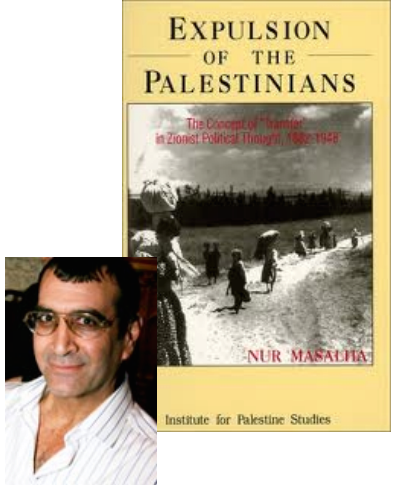 This fourth installment of a series I began in 2010 is long overdue. The previous posts are:
This fourth installment of a series I began in 2010 is long overdue. The previous posts are:
- Zionist Founding Fathers’ Plans for Transfer of the Palestinian Arabs
- Redemption or Conquest: Zionist Yishuv plans for transfer of Palestinian Arabs in the British Mandate period
- The Weizmann Plan to “Transfer” the Palestinians
My intention is to make a little more widely known a scholarly Palestinian perspective of the history of Israel’s efforts to transfer Palestinians from their lands. A good many myths have long circulated in Western countries about the Palestinian situation, such as the supposed “emptiness” of the land at the time the first Jewish immigrants began to arrive, and about the supposed lack of cultural, religious or ethnic ties Palestinian Arabs had for Palestine, or even the assumption that the Palestinians had no distinctive sophisticated cultural, intellectual and settled urban identities at all. Palestinian historian Nur Masalha has researched the personal, diaries, the letters, the meeting minutes, government archives, of the Jewish leaders and organizations responsible for bringing about the Jewish state of Israel and published one facet of his findings in Expulsion of the Palestinians: The Concept of “Transfer” in Zionist Political Thought, 1882-1948, published in 1992 by the Institute for Palestinian Studies.
I am well aware that some regular readers deplore posts like this thinking they are antisemitic propaganda and some may even loathe this blog and stop reading. Yet this is a far more important question than biblical studies. I can only ask that we pause and check whether we might possibly have not yet truly heard the real story but have relied predominantly upon emotive declamations as filtered through one side of the conflict. If these posts go beyond what the primary evidence of the documented record allows then they can rightly be dismissed. I hope to present the documented evidence for the real plans and hopes of prominent figures that resulted in the Palestine we see today. I see no point in having a blog that only repeats what many others are saying far better than I can. The posts I compose are for most part, I hope, invitations to re-evaluate (on the basis of authoritative sources, clear evidence and valid argument) what many of us (myself included) have long taken for granted.
Rather than add many explanatory footnotes I link directly to (mostly) Wikipedia articles that explain certain names and terms that I bring in to the discussion. I spell names the way they are printed in Masalha’s book.
The Royal (Peel) Commission
The Peel Commission was set up in May 1936 to investigate the causes of the often violent conflict between Arabs and Jews in Palestine throughout the six month period of a strike by Arabs that year. The following year the Commission published the report that initiated efforts to divide Palestine into Jewish and Arab entities. It also recommended the eventual “transfers” of 225,000 Arabs and 1,250 Jews. This post makes clear the thinking of Jewish leaders in the lead up to this Commission’s enquiry and recommendation for population transfers.
Background: British Opposition to Arab Transfers
As we saw in the previous post the Zionist leadership in Palestine in the early 1930s were very conscious of the need not to provoke British public opinion by openly declaring their plans to remove the Arabs from the territories they planned for the Jews. The British public and many government officials had initially been unaware of the strength of Arab opposition to the gradual loss of their lands but when they did learn how strong it was (through Lord Passfield and the Shaw Report) British officials made it clear to Zionist representatives that Britain would not support any plans for transfer.
Accordingly Chaim Weizmann’s plan for transfer was kept from the British public. It was only raised in private talks with selected British officials. Zionist leaders certainly did not abandon their intentions to remove many of the Arabs from their lands.
Schemes for transfer cropped up repeatedly in Zionist deliberations on Arab opposition in Palestine. Those plans were suggested as feelers in negotiations with the British, though there was no mention of them in public announcements. (Simha Flapan, long time head of the Mapam party’s Arab department, in Zionism and the Palestinians, p. 82)
Zionist leaders recognized that Arab transfer could not be accomplished without British support, or even without the British forces.
Background: Grounds for Zionist Optimism
Zionist leaders did begin to sense that a Jewish state was a real possibility despite the above and other setbacks.
Arab opposition to Zionist policies was clearly increasing. The “Great Arab Rebellion” began with a call for a general strike in April 1936. Nonetheless Jewish immigration continued to rise as a result of persecution in Europe:
- 1933: 30,000 from Europe
- 1934: 42,000
- 1935: 61,000
By 1936 Jews made up 29.5% of the population of Palestine.
Meanwhile, Lord Passfield’s White Paper opposing the transfer of Arabs was effectively repealed by the British Colonial Secretary, Ramsay MacDonald, in a letter to Chaim Weizmann.
Then in March 1936 the British House of Commons voted against a proposal to set up a legislature in Palestine based on population parity. Such a system would not have allowed the Jews to consist of more than a third of its members. Masalha remarks that this legislation was defeated as a result of Zionist pressure.
So by the time of the Peel Commission and its final report Zionist leaders were feeling much more confident in their future and entered a new and much bolder phase of pushing for “a radical solution” to the “Arab problem” — population transfer.
Transfer Plans Back on the Agenda
Mapai Party meeting, 30 March 1936
Meeting of the Political Committee of Mapai, dominant party of the Yishuv (Jewish settlements)
Attendees included:
- David Ben Gurion, party leader;
- Moshe Beilinson, journalist and leading ideologue;
- Dov Hos, prominent in both Histradrut (Jewish trade union) and the Haganah (Jewish paramilitary).
Proposal

Moshe Beilinson proposed that Zionists should demand from Britain
extensive aid for a large development plan, which would enable the evacuation of large Arab tracts of lands for our colonization, through an agreement with the [Arab] fellahin. (Heller, Yosef. Bama’vak Lemedinah, Hamediniyut Hatzionit Bashanim 1936–1948 [The Struggle for the State: The Zionist Policy 1936-1948], Jerusalem, 1984, p. 118)
Response
Dov Hos pointed out that this proposal was intertwined with the question of Transjordan that was too politically sensitive to be raised at that time.
Response
Ben Gurion pointed out that he would be discussing the Transjordan question with the British high commissioner, Arthur Wauchope, seeking to ascertain if the British government would be prepared to give financial aid. He was not hopeful, however, given the then current Arab protests.
Jewish Agency Executive meeting, 19-20 May 1936
The Jewish Agency was the policy making body of the Jewish settlements.
Attendees included:
- Menahem Ussishkin (see also previous post for his public call for the transfer of the Arabs)
- Arthur Ruppin (till 1925 had been head of Zionists’ Land Settlement Department; a relative moderate)
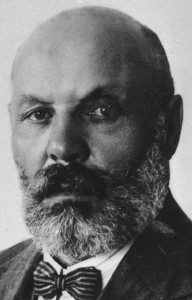
Declaration by Ussishkin:
I would very much like the Arabs to go to Iraq. And I hope they will go there sometime . . . agricultural conditions in Iraq are better than in the Land of Israel because of the quality of the soil. Secondly, they will be in an Arab state and not in a Jewish state. We cannot remove them from here. Not only because we cannot, even if an exchange has been carried out between the Greeks in Asia Minor and the Turks, between Turkey and Greece. But today they would not accept this.
What we can demand today is that all Transjordan be included within the Land of Israel . . . on condition that Transjordan would either be made available for Jewish colonization or for the resettlement of those Arabs whose lands [in Palestine] we would purchase. Against this, the most conscientious person could not argue . . . For the Arabs of the Galilee, Transjordan is a province . . . this will be for the resettlement of Palestine’s Arabs. This is the land problem . . . Now the Arabs do not want us because we want to be the rulers. I will fight for this. I will make sure that we will be the landlords of this land . . . because this country belongs to us and not to them . . . .
In the notes Masalha adds:
Ussishkin also stated that the frontiers of the Land of Israel stretched from the “great sea” [the Mediterranean] to the Euphrates and were not the Balfour frontiers. These wider frontiers are clearly “drawn on the wall of my Jewish National Fund Office.“
[From Protocol of the Jewish Agency Executive’s meeting on 19 May 1936, confidential, no. 57. CZA. 25/3, pp. 28-29. Ussishkin is also on record as calling again for the transfer of the Arabs at the Jewish Agency Executive meeting a week later.]
Notice that it is understood that compulsion would be required to transfer the Arabs to Iraq but that somehow it is assumed compulsion would not be necessary to move them to the Transjordan — an idea to which “the most conscientious person could not object.”
This concept of transfer to Transjordan as being somehow painless and permissible is a recurring theme in Zionist debate. (p. 52)
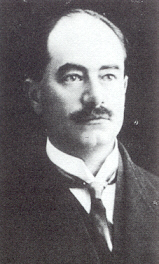
Arthur Ruppin responds to Menahem Ussishkin:
[Ruppin had] come to the conviction and conclusion that there is no way of reaching a peace agreement with the Arabs without abandoning our fundamental demands. . . .
I also had entertained dreams like yours. I once said, Iraq will absorb the Arabs of the Land of Israel and all the peoples of the world would recognize our justified demands. . . . But . . . how could you conceive that Arabs would abandon the Land of Israel and go to Baghdad? What is in it for them? . . . . In Baghdad the fellah receives 3 or 4 piastres as a daily wage. Here the fellah receives 12-15 piastres. There he is living in abject poverty, but not here. Why should he go to Iraq? Is this only because it is an Arab country? In his eyes Palestine nowadays is still an Arab country, and he will still fight for its Arabness. . . . and the condition of the agriculture in Iraq could not be described as the Garden of Eden. (Protocol of the Jewish Agency Executive meeting 20 May 1936, in Heller, Yosef. Bama’vak Lemedinah, Hamediniyut Hatzionit Bashanim 1936–1948 [The Struggle for the State: The Zionist Policy 1936-1948], Jerusalem, 1984, pp. 140-141)
Preparing for the Arrival of the Peel Commission
The Royal (Peel) Commission was scheduled to arrive in Palestine in November 1936. The Jewish Agency Executive held more meetings in October to prepare for them.
At the time of these meetings there were calls from the Palestinian mandatory government for legislation to protect minimum land holdings for the Arab peasants and to impose restrictions of Jewish land purchases in certain areas. (Recall that the purchases were usually arranged between Jewish purchasers and absentee landlords: the peasants were powerless.)
A consensus emerged within the Jewish Agency Executive to oppose any legislation granting protection to Arab tenant farmers.
The Jewish Agency Executive meeting
Yitzak Ben-Zvi, president of Yishuv‘s national council, another prominent Histadrut and Mapai leader (later the second president of the state of Israel)
–argued for removing dispossessed Arab peasants to neighbouring countries, including Transjordan, on a “voluntary” basis.
Moshe Shertok, head of the Political Department of the Jewish Agency:
— supported Ben-Zvi’s view since Transjordan had a large land reserve for both Jewish colonization and Arab resettlement.
(Source: Simha Flapan, long time head of the Mapam party’s Arab department, in Zionism and the Palestinians, p. 260, citing Protocols of the Executive Meeting)
Majority of Jewish Agency Executive members — including
- Ben-Gurion
- Weizmann
- Ben-Zvi
- Eliezer Kaplan
- Shertok
- Selig Brodetsky
- Efrayim Rottenstreich
- Yitzhak Gruunbaum
— favoured adopting “in principle an undeclared policy” to be promoted directly in talks with the Peel Commission due to arrive in November.
Ben-Gurion summarized the discussions:
If it was permissible to move an Arab from the Galilee to Judea, why is it impossible to move an Arab from Hebron to Transjordan, which is much closer? There are vast expanses of land there and we are overcrowded. . . . Even the High Commissioner agrees to a transfer to Transjordan if we equip the peasants with land and money. If the Peel Commission and the London Government accept, we’ll remove the land problem from the agenda.
(Source: Simha Flapan, long time head of the Mapam party’s Arab department, in Zionism and the Palestinians, p. 261, citing Protocols of the Executive Meeting)
Ben-Gurion had doubts that the British would approve of mass transfer even though he sympathized with the proposal. The Greco-Turkish exchange was not a valid precedent, he reasoned, since the Jewish settlers were not a state. . . “although there is nothing morally wrong with the idea.“
Final vote 29 October 1936
The proposal for a “voluntary” transfer of displaced Arab farmers to the Transjordan was passed by majority vote of the twenty-one member Executive.
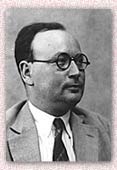
Only two members dissented:
Both of these members were non-Zionists — there were a total of four non-Zionists on the Executive. David Senator had earlier argued
We cannot say that we want to live with the Arabs and at the same time transfer them to Transjordan.
(Source: Simha Flapan, long time head of the Mapam party’s Arab department, in Zionism and the Palestinians, p. 260, citing Protocols of the Executive Meeting)
.
Next — the Peel Commission arrives in Palestine . . . .
If you enjoyed this post, please consider donating to Vridar. Thanks!

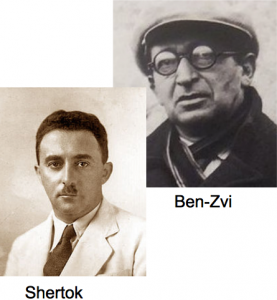
“Palestinian historian Nur Masalha has researched the personal, diaries, the letters, the meeting minutes, government archives, of the Jewish leaders and organizations responsible for bringing about the Jewish state of Israel and published one facet of his findings in Expulsion of the Palestinians: The Concept of “Transfer” in Zionist Political Thought, 1882-1948, published in 1992 by the Institute for Palestinian Studies.”
Ah, if only you would apply the same skepticism towards Palestinian Patristics that you apply towards Christian Patristics.
You have a responsibility to present the whole picture Neil. Israel has the power to expel all Palestinians but chose not to. The Palestinians did not have the power to expel all Israelis but would have chosen to. The surrounding Muslim countries did expel all Jews. This is what Israel is dealing with.
You have the right to only present one side, just don’t be surprised when you are criticized for doing so.
Joseph
Had I posted a repeat of the Zionist narrative would you have protested that I was presenting only one side of the story, then, Joseph?
You are invited to present the detailed evidence for the other side. (Yes, I hope to post on the Arab expulsion of the Jews, too. I trust you will accept the detailed evidence I provide to give the full picture of that when I do.) I am surprised anyone should fault this post for being one-sided. How often do we hear the Zionist side compared with what I have posted here? When has the Palestinian side ever gained a hearing apart from Western media filters?
As for scepticism, I am endeavouring to be as factual as I can be. If you have reason to doubt the contents of the Central Zionist Archives then I am all ears.
Actually, what this post is presenting IS probably in the truest sense both sides of the story: It is a Palestinian historian’s presentation of his research into the Central Zionist Archives. The direct quotations are those of the Jewish leaders of the day — including dissenting voices where there are any.
The foundation of the state of Israel was a tragedy for those Jews living in Arab lands as well as the greater tragedy for the Palestinians who suffered ongoing dispossession and genocide in Palestine. Jews had always been important in the intellectual life of medieval Spain and of all Arab lands, where followers of all religions learnt from each other and from the traditions they preserved. Followers of Judaism, and indeed of heretic Christian sects found at most times protection and freedom in Islamic lands, away from the persecution of Christian emperors and kings. In Palestine too the Jewish minority got on well with their neigbours before the rise of Zionism. After 1948 all this changed and Israel provided the money and encouragement for Jews to leave Arab lands – including false flag operations such as the bombing of synagogues in Iraq and Egypt by Mossad. Some former Iraqi Jews still hate Israel for causing the destruction of that oldest Jewish community in the world. Jewish nostalgia for this Arab past seems to be growing: http://www.haaretz.com/culture/arts-leisure/.premium-1.585884
Neil, in your opinion, are the forces within Israel that are committed to the systematic genocide of Palestinian Arabs working in opposition to, or in cooperation with, the forces that merely want to expel them?
Why do you speak of “systematic genocide” in this context? If you are referring to my own use of the term “genocide” then I remind anyone interested that I used it according to the definition of genocide adopted by the UN General Assembly in 1948.
What the Palestinians have experienced is the widespread destruction of their books, of cultural heritage and cultural associations, along with the fragmentation of their communities on top of the widespread forcible expulsion from their lands. No-one has ever talked about physically killing off an entire people or part of an entire people. In fact, as one Palestinian from the West Bank said to me, “What else can people do when they are confined to their homes with nothing to do except, well, breed?” And it is the demographic question that some analysts are suggesting will bring about the eventual end of Israel as a Jewish state.
I wonder if the rise of Hamas might be testimony to the destruction of other once-viable cultural institutions since Hamas has won its success by entering vacuums left by the wrecking of cultural and social services.
I guess I’m with you here, Neil…systematic genocide of Palestinians is a misnomer and a crock.
Same as if anyone said Israelis were genociding Arab and Muslim and Christian communities on the Israeli side of the Green Line.
It would be an untruth.
Again I have to point to the situation on the Israeli side of the Green line and treatment of non-Jewish peoples in Israel. Free to believe their own beliefs. Free to celebrate their own religious festivals. Free to not have to be Jewish to be a citizen. Their holy places respected…with the added expectation that they respect the holy places of the other religions there.
Forcible explusions? Let me get this straight…in 1948, two sets of promises are made…one by Israel, one by the invading Arab armies. One promise is…”You stick with us, we give you FULL citizenship and full rights.” The other promise is…”Leave your homes, we’ll have you back in a week after we destroy the Israelis…”
So there was a group of Palestinian Arabs, Christians and Muslims, who believed the Israeli promise. They’ve been enjoying Israeli citzenship and rights ever since. There’s a group of Palestinian Arabs, Muslims and Christians, who believed the OTHER promise. They left the place stupidly believing the Arab armies attacking Israel would have them back in a week.
No, those that left didn’t get back in a week…and their fellow Arabs are decades later treating them like crap. But if a Palestinian Arab refugee even dares think: “Gee, perhaps I should have believed the Israelis…” he’s considered a collaborator and summarily executed…by PLO/PA or Hamas if not by anyone in a host country.
I might point out Israeli Arabs don’t live in refugee camps…they live in cities. Apartments. With social services. With opportunities for jobs and careers.
Free to keep their culture and cultural activities.
That’s NOT coming through Western news sources by the way. Most Western news media I see these days seems to think Israel is as bad as the PA and Hamas claim it is.
Currently the Waqf in the Old City is doing excavations of the Temple Mount and dumping OUT of the platform anything that was archaeology of the Jewish ancient temple. The work is illegal…and probably has the effect of undermining the platform. If the damn platform collapses, do we blame the Israelis for the Waqf’s own antics? Should the Israeli authorities STOP this work before it undermines and collapses the platform the Dome and Al-Aqsa sit on? Or should they stand back and let Palestinian stupidity remove the whole darn complex?
The Israelis will probably get the blame whichever they do…but IF the Palestinians dig so much that they COLLAPSE their own holy site…well, at least then there’s a remodelling job due for the Temple Mount.
‘1948, two sets of promises are made…one by Israel, one by the invading Arab armies. One promise is…”You stick with us, we give you FULL citizenship and full rights.” The other promise is…”Leave your homes, we’ll have you back in a week after we destroy the Israelis…”’
Any evidence that the Arab armies made any such promise?
Non- Jews in Israel are treated as second-class citizens.
You obviously weren’t old enough to remember it…
The point is…the Israelis stuck to their promise.
Non-Jews treated as second class citizens? Again that canard.
Let’s try this one…Israeli-Arab women, whether Muslim or Christian, are allowed to DRIVE. Oh, those bad Israelis letting that happen… Might I point out what Muslim women in Saudi Arabia don’t get allowed to drive. Those BAD Israelis…treating women with such contempt that they not only allow them to drive, but as non-Jewish women, they can run major departments in an Israeli hospital.
That’s on Google, by the way.
Arab supreme court judges…one of which sentenced a former President of Israel a while back…oh, such BAD Israelis, letting non-Jews take full part in the Israeli legal service.
And Haneen Zoabi. She’s a minister of Knesset. Second class? My ass. Such NASTY Israelis that they consider her SO second class that she, a woman, speaks up as a full citizen and Minister of Knesset…they tend to object a lot to the fact she’s such a big supporter of enemies of the very state she’s a citizen of. But oh, such NASTY, BAD Israelis that they don’t charge her with treason yet. You know, in my country, if we had an MP so blatantly supporting or working for any form of enemy entity, we’d have them keelhauled for treason?
I might remind you I am non-Jewish and when I was over there…I can’t really say I was treated second class. Admittedly, I was a non-citizen tourist so I really shouldn’t have expected the exact same treatment as a citizen…but I sure as heck never had to worry about basic human rights treatment from them.
Such bad, meanie Israelis.
I’ve been going over the Wikipedia entry on the topic…and at least the Israelis were damn sure they’d heard of the Arab armies’ promise.
And yes, I’m noting there’s this big denial of it from the Arab side. Not that it means the promise wasn’t made…just means no one wants to admit they made it after they lost to the Israelis.
While I see some difficulty in finding some verifying information on the Arab armies’ promise…I don’t consider it impossible. Just might take a few weeks or so.
I can wait a few weeks. I am sure the Israeli authorities would never tell a lie about what Arabs say or do.
This is the problem with the UN definition of genocide. The “-cide” ending implies killing, yet under that definition there can be a genocide without anyone being killed.
This means that the term ends up giving a misleading impression.
Genocide is still defined by people being killed.
The Holocaust still remains a clear genocide. One the rest of the world stood back and watched without doing anything, I might add. It still remains the textbook definition of a true genocide.
But oh, I forgot…Holocaust deniers don’t want to recognize it at all.
Genocide is what Saddam Hussein did to Marsh Arabs not long after the Gulf War. Tens of thousands. Assad’s father…also known to have instigated some killing against some sections of Syrian society…still in the four-figure range. In a short time. Rwanda. A few other areas.
Oh, and let’s take a look at Syria. 100,000?
Gee…and everyone claims the Israelis commit genocide?
Pot calling the kettle black.
Given the chance…more Israelis would have died, too…if the PLO/PA and Hamas, as well as Hezbollah had their way and we removed Israel’s right to self-defence.
But no, Israelis are SO cruel they don’t allow their own people to be martyred and go to Paradise to meet 72 black-eyed version…the bastards.
No changing the definitions or the goalposts.
Most Arab nations would consider Israel an UNDER-Achiever in death tolls.
I CAN cite a situation that happened in 1990…the time I was there on my second trip. The worst part about the incident I am about to describe is that in the OUTSIDE world, where the “Western media” had a say in how it was presented, it was presented as the Israelis starting it…when ACTUALLY it started with Jews AND Christians at the Western Wall for Succot suddenly finding themselves pelted from above with large rocks.
You might remember the Palestinians at that time wanted to side with Saddam Hussein…
There was a riot happening up the top…and the Israeli police/IDF initially tried handling it with tear gas and rubber-bullets. Until the riot looked to move down the ramp towards the Western Wall plaza. THAT, and only that, is the time the IDF had to open fire with live rounds. How many of the Arab rioters were “genocided?” 18. Out of a couple of thousand rioters.
Nope…Saddam would have called that a TRIVIALLY-small amount if the Israelis were fellow Arabs. Assad might have said: “Not trying hard enough, you should have killed at least a few hundred more…”
Among the crowd getting hit with the initial rocks were tourists. Israel has a policy of looking after tourists’ safety and well-being. What did you expect them to do…just LET the rioters do what they liked?
But please don’t call it a genocide. Because it doesn’t compare to Saddam’s five-figure toll, nor Assad Snr’s four-figure toll…nor does it compare to the current civil war in Syria, where regardless of the sides involved…there’s a SIX figure toll.
The nested replies thing strikes again.
Neil, I’ve at least a few times said we should agree to disagree.
This is doing neither of us a service continuing it.
And unfortunately, already someone else has suggested this topic be on a separate blog from your other stuff…and rightly so, as your other stuff is brilliant and I have a high respect for what you raise on the early Christian literature.
But debating the Middle East situation looks to seriously detract from the good work you do on that research on early Christianity.
While I could debate the Middle East of the 20th and 21st century ad infinitum…I won’t do so at the risk of it interfering with what I learn from your early Christian history material.
So this is where I leave off this topic because I want to see more of your research and reading and insights into the other material.
I know you mean well, and intellectually I understand where you’re coming from in your thoughts on the current Middle East, but again, I have to recommend you go there instead of being arm-chair.
“I am well aware that some regular readers deplore posts like this thinking they are antisemitic propaganda and some may even loathe this blog and stop reading.”
I (regular reader but not commentator) would personally never think that, since I don’t believe you’ve given your readership any reasons to think so (as far as I can tell, you fight prejudice from all sides), but it’s still interesting that you, like most Westerners, focus on this particular issue a lot more compared to any other similar and recent acts of ethnic cleansing. Perhaps we are just interested in the Holy Land too much…
Thanks for your comment. It is nice to be reassured from time to time (and others also post agreement which is welcome) when I know some people with whom I have had solid online relationships in other ways do not appreciate posts like this at all.
I concur with those who believe we have responsibilities to try to do/say something where our actions/voices have some impact in concert with others. The Palestinian question has been said to be a “defining” issue of our generation and our Western government representatives are certainly complicit or have potential influence on key players. At the same time, our voices do signal some encouragement and support that can be welcome to those directly involved. On the other hand, any discussion from me about, say, the current racist tensions in Burma would be entirely academic — unless I were actively concerned with trying to increase Western awareness of what is happening hoping to do my bit to add to pressure on those who can to use their influence for positive change in those countries. But others are doing a far more dedicated and better job at that than I can hope to do.